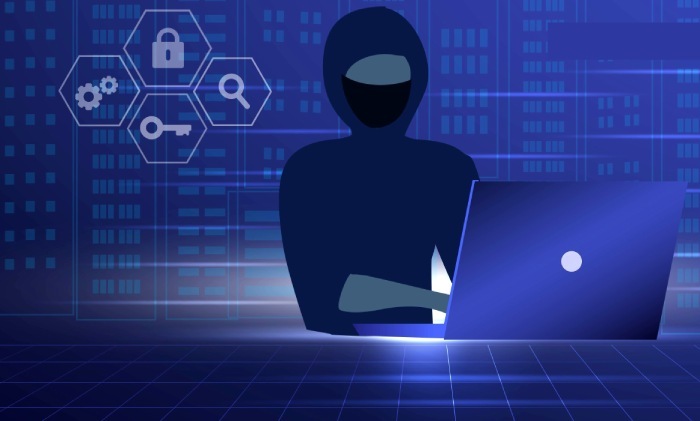Cybersecurity Orders Reversed, OpenAI blocks Attackers, Africa Boosts Training
This week, we will see how the cybersecurity system is going through a transformation under the leadership of Trump. Also, our focus will be on OpenAI’s banning of ChatGPT profiles associated with nation-state cyberattackers. Lastly, we will discuss the ongoing cybersecurity training sessions in Africa, aiming at curbing threat attacks once and for all.
If you want to dive deep straight to the details, scroll down!
Cybersecurity orders prioritised by Biden and Obama are being reversed in the Trump-led USA!
The Trump White House has passed an order on June 6, reversing a couple of cybersecurity orders that were once prioritized by his predecessors, Biden and Obama. Under the leadership of Trump, the digital ID program has been obliterated. Cyber sanctions are also being capped. The Trump administration has never been happy with CISA (Cybersecurity and Infrastructure Security Agency). Right after Trump’s inauguration, CISA lost almost all of its resources and personnel.
The executive order passed on June 6 has brought in rules that prohibit the government from allowing cyber sanctions against any domestic adversaries. They believe that this prohibition is necessary, otherwise the same power can be misused against political rivals.

The EO has also killed the Digital ID program of the Biden era. The Trump administration believes that immigrants could have misused this program to carry out fraudulent activities. The EO is also eliminating “unproven and burdensome software accounting processes that prioritized compliance checklists over genuine security investments.” The Trump administration is also against micromanaging cybersecurity decisions and wants them to happen at the department and agency levels.
AI policy and cybersecurity expert Michelle Sahar believes that the new executive order is a highly effective and positive step towards strengthening security mechanisms across the US.
OpenAI takes stringent action against nation-state cyberattackers on ChatGPT!
OpenAI’s investigative team recently discovered multiple ChatGPT accounts that were being misused to carry out malicious activities globally. OpenAI took swift action and banned all those accounts instantly to prevent instances of social engineering, cyber espionage, and fake employment schemes. According to the investigative report, Nation-state threat actors were using these ChatGPT accounts for malware development, conducting research on US technologies, and other similar activities.

The investigative team has been monitoring the activities of these profiles for the last three months. They used AI technology as a “force multiplier” to help in the investigation process. They believe 4 out of 10 of these malicious activities were being carried out from China. However, countries like the Philippines, Cambodia, Russia, and Iran were also involved in certain instances.
The ChatGPT accounts in Cambodia were using the genAI tool to come up with short and crisp recruitment messages in different languages, such as Swahili, English, and Spanish. North Korean accounts were using ChatGPT to find out tricks and tips to evade security mechanisms and stay undetected. Meanwhile, the Russian cyberattackers were busy developing debug code, Windows malware, and creating a command-and-control system.

Africa all set to bolster its economy and people through cybersecurity training!
Since Africa is one of the worst hit when it comes to cyberattacks, African organizations have joined hands with global international educational institutes with the aim of offering cybersecurity training to students as well as young adults. The ultimate goal is to improve digital security and boost the economy.
The United Nations Development Programme (UNDP) went ahead with expansion to train young adults in Central and West Africa under the Tech4Peace initiative. Carnegie Mellon University, the United Nations, and other private organizations are also working hand in hand to combat the increasing cyberthreat across African nations.

The main motive behind this major decision is the shortage of cybersecurity skills in Africa. They are trying hard to match the pace with modern digitization. But the lack of skilled workforces who have thorough knowledge of cybersecurity is making Africa highly vulnerable to cyberattacks.
These organizations will work together to train the youth and professionals in tech-based skills such as programming. Such skill, along with expertise in cybersecurity, can prove to be quite handy in combating cyberattacks.

Training will also be imparted to older adults, parents, teachers, caregivers, and other professionals. The training sessions for these professionals will be designed strategically in order to educate as well as create suitable opportunities. Cybersecurity training is essential for understanding and implementing email authentication protocols like DMARC, DKIM, and SPF to protect against phishing and spoofing attacks.
Cybersecurity experts believe that empowering students, young adults, and professionals with cyber awareness is a crucial step towards bolstering Africa’s economy. These training sessions will not only strengthen individuals and raise awareness but also prepare Africa to combat cyberattacks in the future.







